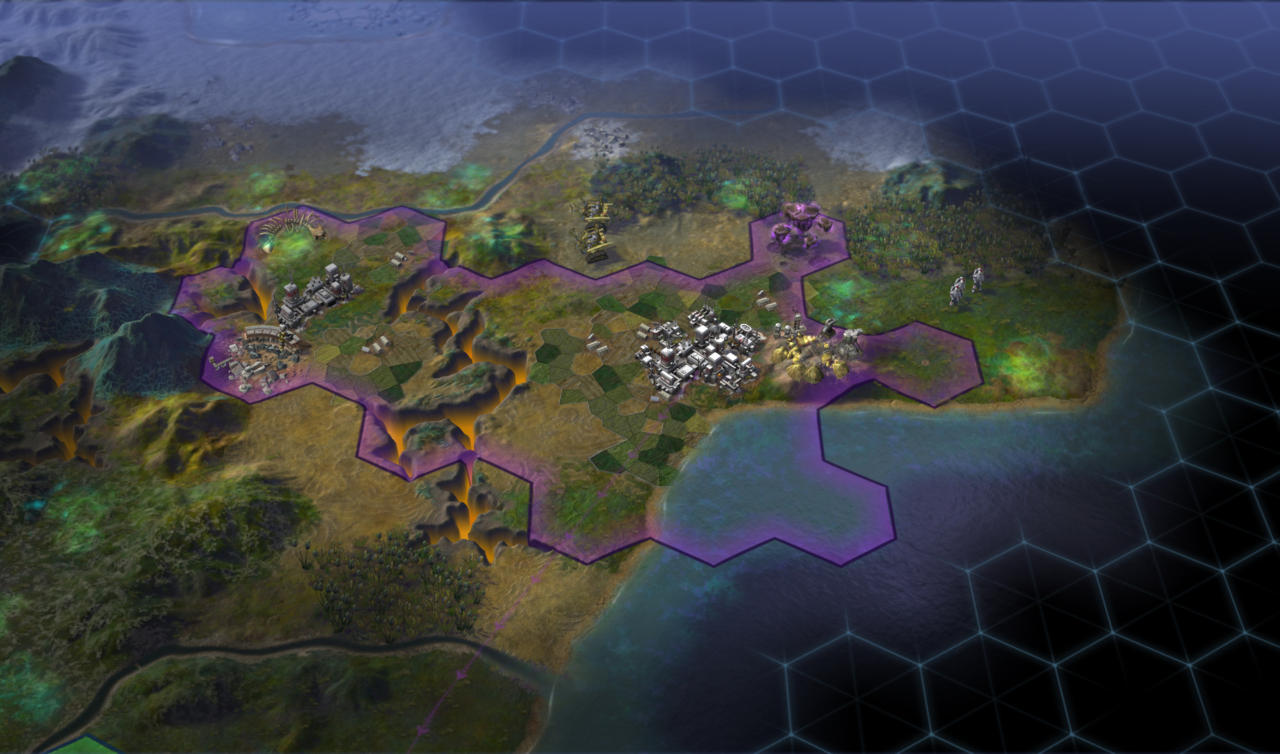How Civilization: Beyond Earth Is Improving Proxy Warfare
War has changed.
The Civilization series has a slant towards open warfare. Sure, diplomacy is an option, but if you really need another civilization dealt with, then declaring war is often the best--and only--solution. However, this often carries with it serious ramifications, be it economic, political, or even nuclear (looking at you, Gandhi). I recall several games of Sid Meier's Civilization V in which I tried to circumvent open warfare in favor of fighting proxy wars by supplying extra troops and gold to civilizations at war with my rivals. Typically, the other civilization would just pocket these "gifts" and declare peace shortly thereafter, or get itself killed. Either way, I just flushed a lot of resources down the drain.
Fighting proxy wars--and generally harassing other players--is a lot of fun, especially for a series such as Civilization, which has always taken place on the global stage. It's also something Civilization: Beyond Earth co-designers Will Miller and David McDonough have been expanding upon in the next chapter in this long-running strategy series. If you're not already caught up on Beyond Earth, be sure to check out our extensive coverage of the game. Otherwise, read on to learn more about the changing face of galactic warfare.

"We wanted the state of war to be fuzzier in Beyond Earth," said Miller. "Very rarely, if ever, in the modern age does Congress declare war and go through all the formalities involved. It's just not the way the world works. I feel like we needed that binary state in past Civilization games--either you're at war or not at war--but adding these secondary vectors for offense and defense in Beyond Earth was a goal of ours from the beginning. There's the covert ops system, which can produce some serious damage to another player you're not at war with, as well as stations and the orbital layer."
While the covert ops system is still under wraps--and the orbital layer has already been discussed--Miller and McDonough were able to shed some light on stations, which are Beyond Earth's spin on Civilization V's city-states. Stations are created when a group of your citizens decide to form their own research lab or military base or hydroponic garden or some other facility elsewhere on the map. They will approach you with plans for two types of stations, and the one you chose to support will appear on its own tile somewhere close by--but outside of--your empire. Similar to city-states, stations can be used to help augment a weaker part of your empire, such as by producing military units or generating research points. You can trade with them, and through trade improve your relations with the station and earn greater benefits.
Other civilizations can roll up and wipe out a valuable station without having to declare war on you first.
However, stations are vulnerable if they're not within your national borders. Other civilizations can roll up and wipe out a valuable station without having to declare war on you first. And if you relied on that station for, say, military aid, losing it can be a crushing blow. As Miller explained, "[Stations] can be a means to wage proxy wars or shadow competitions with your neighbors, so you can see where other players are strong and where their interests lie and then attack them there. That's one of the ways you can cripple an opponent's infrastructure and apply diplomatic pressure without declaring war."

Of course, you could also take a more peaceful approach to dealing with another player's station by establishing trade routes of your own and competing for that station's favor. This could force any number of responses from the other player, such as doubling-down on trading frequency with that station or destroying it. And unlike city-states, stations don't function as miniature versions of the other civilizations: they don't occupy surrounding tiles, and you can settle in close proximity to them. Measuring another player's response to a particular station is a sly way to get some insight into their larger strategy.
It should be noted the design and play style of stations is still in flux, and could change before Beyond Earth's final release. Hopefully, when they're combined with the rest of the game's more underhanded options, they create a viable way to muscle out the competition without having to rely purely on brute force. You can see how it all shakes out for yourself when Sid Meier's Civilization: Beyond Earth is released later this year.
See more coverage of E3 2014 →
Got a news tip or want to contact us directly? Email news@gamespot.com
Join the conversation